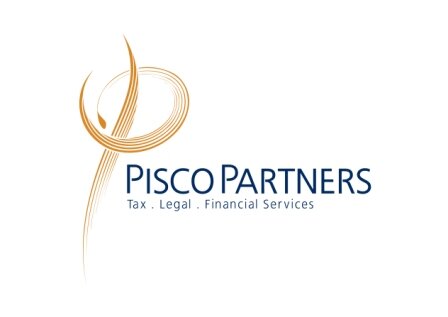Best Landlord & Tenant Lawyers in Ta' Xbiex
Share your needs with us, get contacted by law firms.
Free. Takes 2 min.
Free Guide to Hiring a Real Estate Lawyer
List of the best lawyers in Ta' Xbiex, Malta
About Landlord & Tenant Law in Ta' Xbiex, Malta
Landlord and tenant law in Ta' Xbiex, Malta is governed by various national regulations aimed at balancing the rights and responsibilities of both parties. As a locality within Malta, Ta' Xbiex follows the same legal framework that governs rental agreements, tenant protections, and dispute resolution. These laws ensure that tenants enjoy a peaceful occupancy while landlords maintain ownership rights and receive due rent.
Why You May Need a Lawyer
People dealing with landlord-tenant matters in Ta' Xbiex may require legal assistance in several scenarios, including:
- Drafting or reviewing rental agreements to ensure they comply with Maltese law.
- Navigating disputes over damages, repairs, or maintenance responsibilities.
- Handling eviction processes in a legal and compliant manner.
- Addressing issues related to rent increases or payment disputes.
- Resolving tenant rights infringements, such as unlawful eviction or harassment.
- Providing guidance on local rules concerning deposit returns and holding.
Local Laws Overview
The legal landscape for landlords and tenants in Ta' Xbiex, Malta involves several key elements:
- Rental Agreement: Contracts must be in writing and are typically regulated under the Residential Leases Act, ensuring fair terms for both parties.
- Rent Control: There are limitations on how frequently and by how much rent can be increased during the lease term.
- Security Deposits: Typically, a one-month rent deposit is collected, which must be returned at the end of tenancy unless there are damages or arrears.
- Tenant Rights: Protection against unlawful eviction or increases and the right to a habitable living environment.
- Eviction Procedures: Tenants must be given a notice period and a legal basis for eviction, adhering to proper legal channels.
Frequently Asked Questions
What should be included in a rental agreement?
A rental agreement should include the names of the parties involved, property address, lease term, rent amount, payment method, responsibilities for utilities and repairs, notice periods, and any special terms agreed upon by both parties.
Can a landlord increase rent during the tenancy?
Rent increases are subject to specific rules and must adhere to the conditions outlined in the lease agreement. Generally, rent can only be increased at the end of the lease term unless otherwise stipulated in the contract.
What rights do tenants have if the property needs repairs?
Tenants have the right to live in a habitable home. Landlords are usually responsible for major repairs and maintenance unless damage is caused by tenant negligence.
How much notice is required to end a lease?
The notice period depends on the lease agreement but generally ranges from one to three months. It's crucial to consult the contract and local regulations for specific requirements.
What happens if a tenant refuses to pay rent?
If a tenant refuses to pay rent, the landlord can initiate legal proceedings for eviction after attempting resolution through direct communication or mediation.
Are tenants allowed to modify the property?
Tenants typically need written permission from the landlord to make any permanent changes to the property.
What is the process for eviction?
The eviction process involves providing a notice to quit, followed by a legal application to the Rent Regulation Board if the tenant does not vacate.
Can I sublet the property I'm renting?
Subletting is usually subject to the terms of the lease agreement and often requires landlord consent.
What are the consequences of breaking a lease early?
Breaking a lease early can result in penalties, the loss of the security deposit, or legal action for unpaid rent unless otherwise agreed upon with the landlord.
How can disputes between landlord and tenant be resolved?
Disputes are best resolved through open communication or mediation. If unresolved, either party can seek legal redress through the judicial system.
Additional Resources
For further assistance, individuals can contact the following resources:
- The Rent Regulation Board: Oversees disputes between landlords and tenants.
- Ministry for Justice, Culture and Local Government: Provides legal resources and support for housing issues.
- Housing Authority Malta: Offers guidance on affordable housing and tenant rights.
Next Steps
If you need legal assistance, consider the following steps:
- Review your lease agreement to understand your rights and obligations.
- Contact a qualified lawyer who specializes in landlord-tenant law in Malta.
- Document all communications and issues you have encountered for your lawyer's review.
- Explore mediation as a first step to resolving the dispute amicably before pursuing legal action.
Lawzana helps you find the best lawyers and law firms in Ta' Xbiex through a curated and pre-screened list of qualified legal professionals. Our platform offers rankings and detailed profiles of attorneys and law firms, allowing you to compare based on practice areas, including Landlord & Tenant, experience, and client feedback.
Each profile includes a description of the firm's areas of practice, client reviews, team members and partners, year of establishment, spoken languages, office locations, contact information, social media presence, and any published articles or resources. Most firms on our platform speak English and are experienced in both local and international legal matters.
Get a quote from top-rated law firms in Ta' Xbiex, Malta — quickly, securely, and without unnecessary hassle.
Disclaimer:
The information provided on this page is for general informational purposes only and does not constitute legal advice. While we strive to ensure the accuracy and relevance of the content, legal information may change over time, and interpretations of the law can vary. You should always consult with a qualified legal professional for advice specific to your situation.
We disclaim all liability for actions taken or not taken based on the content of this page. If you believe any information is incorrect or outdated, please contact us, and we will review and update it where appropriate.










